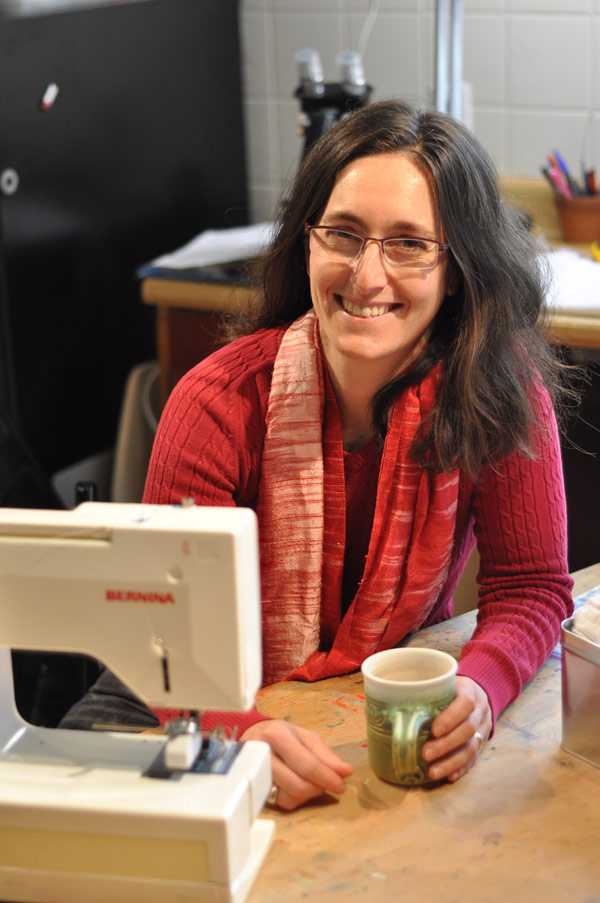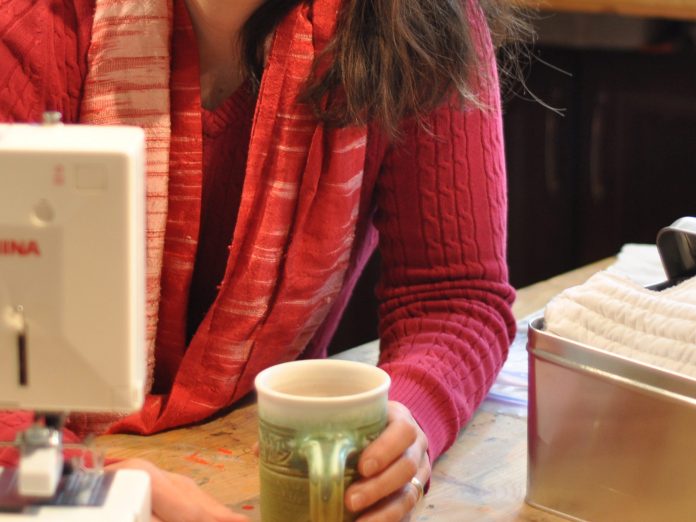By Bhavana Gopinath –
Erin Englehardt has a background in chemistry and patent law, is a passionate environmentalist, and enjoys sewing. When her adolescent daughter requested a natural alternative to sanitary napkins, Englehardt fabricated washable and reusable fabric pads. Erin’s mother saw them and commented, “Do you have any idea how many of my friends are having challenges around urinary incontinence?” She then talked about women she knew who used sanitary products to take care of urine leaks. That conversation led to the realization that the problem of bladder leakage was widespread, and not openly discussed.

Englehardt then started talking candidly to other women, who opened up about their own struggles. There was usually a sense of embarrassment in these stories—about avoiding long drives or hikes, being careful about coughing or sneezing, or using panty liners all the time. She realized that women were ashamed when they had no reason to be.
“Women do leak. That’s the truth,” says Englehardt. Indeed, according to a study by the International Incontinence Society, 58% of women (from ages 18 to 65+) in Canada report some form of urinary incontinence (including nocturia, urgency, frequency, stress incontinence and urge incontinence). According to the International Journal of Obstetrics and Gynaecology, “mild” incontinence is defined as leakage between 1.3 and 20 g, “moderate” ranges from 21 to 74 g and “severe” is defined as 75 g or more. (All values are based on a 24-hour period, and the values in grams correspond roughly to millilitres).
Some leakages do improve with pelvic-strengthening exercises, and severe leakages might require surgical intervention. Most leaks are normal, Englehardt says. They can be an inevitable consequence of pregnancy and childbirth, or of aging or just genetic luck.
“This is normal. We shouldn’t be ashamed,” she emphasizes.
As a chemist, Englehardt is concerned about using synthetic materials and absorbent gels (in sanitary pads and panty liners) in such a sensitive part of women’s anatomy. As an environmentalist, she believes that there should be an eco-friendly, reusable and convenient alternative. “Women deserve better,” she says.
Englehardt founded a company called I Wear One, and designed a patent-pending pad to absorb urinary leaks. Each pad is made of a felt core surrounded by soft cotton and flannel. The front of the pad is grooved to pull fluid into the core, and the back (in white or colorful patterns) is coated with a waterproof, medical-grade laminate. Each pad can hold 50 mL of urine over 24 hours. They are washer- and dryer-safe and soften with use. There are currently two prototypes with different thicknesses and width adjustments.
The first manufacturing run is on track with EcoEquitable – a social enterprise that offers sewing training and employment support in Ottawa – with the materials being manufactured in Montreal. Erin hopes to have them for sale online by the end of November 2015. There are more variants on the drawing board, like pads for thongs, and for those with mobility problems.
The feedback from trials has been encouraging. Women have told her they love the softness of the pads, and the confidence they have while wearing them.
Erin believes that women should not be ashamed about their bodies, and hopes that I Wear One will encourage other women to speak out. Ideally, she says, the issue of leakage should be normalized to the extent that a stack of re-usable pads becomes standard in women’s underwear drawers.
“I want to speak up about this issue, and I want to listen to what women have to tell me,” she says. Contact her at info@iwearone.com, on Twitter @I_Wear_One, at Facebook at facebook.com/iwearone, or visit iwearone.com.
